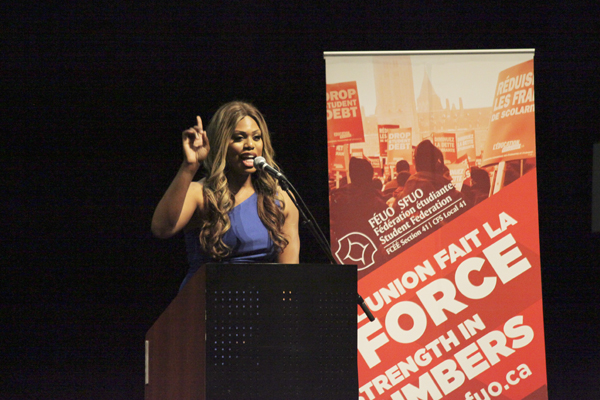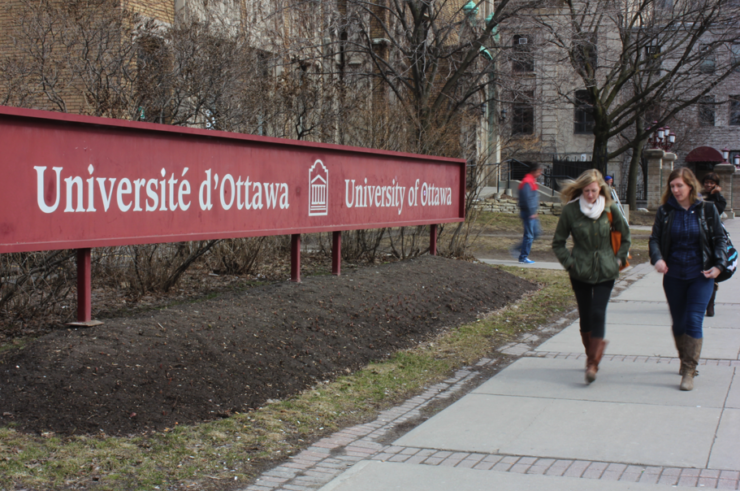Sold-out SFUO event explores racism, classicism, transmisogyny
Photo: Allegra Morgado
Most people who receive a standing ovation do so when they finish a speech, not before they start.
But Laverne Cox is not most people.
The actress and LGBTQ+ advocate, best known for her role as Sophia Burset in Orange Is the New Black, spoke to a sold-out crowd on March 25 at the Bronson Centre.
The event was part of her Ain’t I a Woman: My Journey to Womanhood tour, hosted here by the Student Federation of the University of Ottawa (SFUO) as part of their United Against Racism Week campaign.
Cox’s hour-long talk revolved around her experiences as a black, transgender, working-class woman growing up in Mobile, Ala., and later moving to New York City. She used those experiences to touch on issues in the transgender community today, such as shame, violence, and transmisogyny.
Cox said she recognized there was something different about herself as a child. She explained that although born physically a male, she was often bullied for “acting like a girl,” and reached a tipping point in third grade when her teacher called home after Cox brought a fan to school, reminiscent of Scarlett O’Hara’s from Gone With the Wind. Her teacher suggested therapy to her mother to prevent this behaviour from getting worse, to which her mother promptly agreed.
During one of her first therapy sessions her therapist asked her if she knew the difference between a boy and a girl, and she replied, “There is no difference.” As a third grader she felt that this must be the answer, since she looked like a boy but felt like a girl.
In sixth grade she began to realize she liked boys, and although she loved church because it presented her with opportunities to perform, she said the teachings about homosexuality made her feel more ashamed of herself.
It was around that time that shame drove her to attempt suicide.
“Guilt is ‘I did something wrong,” she said. “Shame is ‘I am wrong.’”
While discussing her experience, Cox pointed to statistics that indicate that 41 per cent of transgender people in the United States report attempting suicide. In Canada, the number is 43 per cent.
Cox also touched on racism and classicism that she encountered while studying as a dance major at the Alabama School of Fine Arts. The school’s population was mostly affluent and white, and while living in the dorms she was called a racial slur for the first time in her life.
After moving to New York City in her 20s, Cox said she finally began to feel proud of her gender expression. This was where she made the decision to transition, as she was inspired and supported by her transgender friends she had met in New York.
The transition did not come without its own challenges, though. She became emotional when discussing the case of Alon Nettles, a black transgender woman who was beaten to death in Harlem.
She also mentioned important ways to support transgender people, such as using proper pronouns and supporting all transgender people, not just those who are passing as cisgendered.
“When a transgender woman is called a man, it is an act of violence,” said Cox.
“Pronouns matter when talking to and about transgender people,” she said. “‘Trans’ is beautiful.”




